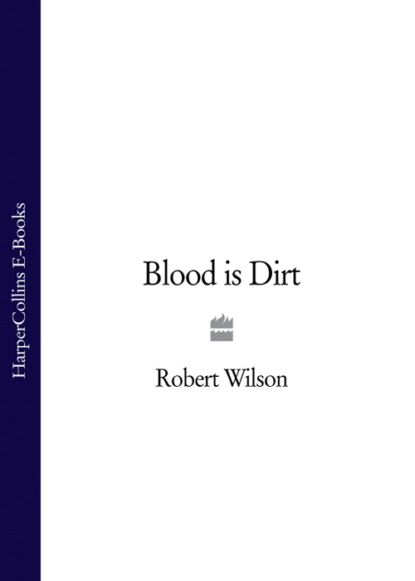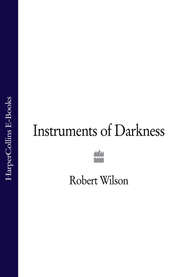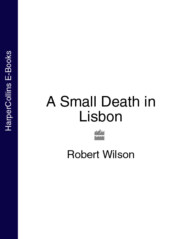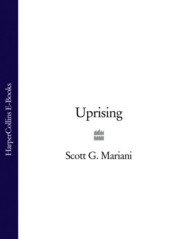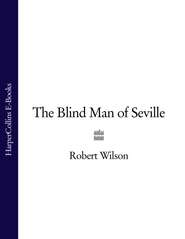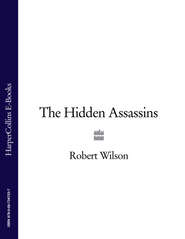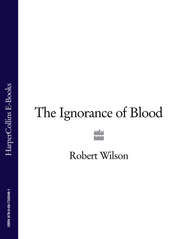По всем вопросам обращайтесь на: info@litportal.ru
(©) 2003-2024.
✖
Blood is Dirt
Автор
Год написания книги
2019
Настройки чтения
Размер шрифта
Высота строк
Поля
7 (#ulink_3bba28ad-54b4-5c32-906c-484f8dba61a1)
Near Akata. Nigeria. Monday 18th February.
I surfaced from a liquid heavier than mercury into chaotic night where distant voices shouted incomprehensible things – bola numasabba hanipitti tibiwanna subsub nabbitihib. Why did I feel sandwiched in sponge cake? There was a popping sensation. No noise. A soap bubble bursting. A smell. I was never so glad to smell that smell. Earth. Rich, damp, black earth. The voices were speaking language this time. Yoruba. Not one of my strengths. Bad-egg saliva squirted into my mouth, my tongue was as huge as a zeppelin in a hangar.
A mechanism clattered. A man checking to see if there was a round up the sleeve. I lay flat on my back. A ridge of pain was scored down my forehead, over my right eye, my cheek and jaw. I wanted to put my hand to my face but my arm was as heavy as a truck axle. The voices, movement, came closer. Shafts of thin light swept above the undergrowth, boots shuffled by my head, a word repeated close enough to hear the plosive on a lip. Voices moved off. High - lifted boots crushed leaves and such. I wanted to move now. I wanted to take off through the trees. The darkness pinned me, pressed me into the moist ground.
The voices vanished. Only the faintest shuffling remained.
A frog offered a tentative croak. He got a couple of replies. Insects rubbed themselves up to full volume and somebody brought in a whole percussion section of football rattles, whistles, maracas and castanets.
A man, no more than two metres from my head, sighed and moved off.
The ground released me with the reluctance of setting concrete. A body check revealed that I hadn’t been shot. I was lying at the bottom of a two-foot thick tree which should have my face imprint on its bark even now.
The lights remained shut down in the clearing. There was a small fire going where some silhouettes passed the time with each other. A truck double-declutched in the distance. I moved towards the noise and found the track and the ditch at the side of it. I remembered the camera. I was in no mood or state for heroism. The camera would have to stay lost.
The break in the forest where Bagado and I had first hit the road appeared and I went back in there but it was too dark. I sat down to wait for first light and propped my head up on a bolster of terrifying dreams which left me raw and jangling and asking for my mother.
By 6.30 a.m. I’d found the car with Bagado screwed up and tossed in the back. I lifted the boot and poked him. He came to, speaking Yiddish, and crawled out of the car and sat on the tail.
‘I was worried,’ he said, with a yawn wide enough to show me he hadn’t had any breakfast. ‘I was very worried.’
‘You should have seen it from my angle.’
‘Judging by your face I imagine it was somewhat sharp.’
‘Big and blunt. I ran into a tree.’
‘Best thing you could have done. This terrain isn’t built for men your size.’
‘I lost the camera.’
‘But you’re here. That’s the thing.’
‘What happened to you?’
‘I have a very strong sense of direction,’ he said,’ and good eyes. I managed to hold on to one of the sample bottles.’
We ate the stale sweet pink bread and corned beef. I washed it down with a single slug whisky to two slugs water. The gout was subdued, not used to such contemptuous treatment. We drove back to Meko and straight out across the border to debrief Gerhard’s people in Kétou. They repaired my face. We had lunch, slept and drove back to Porto Novo.
We gave our report to Gerhard, who arranged for the contaminated water to be packaged in sample bottles and addressed it to a laboratory in Berlin. He paid us. We took the parcel to the DHL office in Cotonou and went back to the office. There were two messages on the answering machine.
The first was Colonel Adjeokuta from the 419 squad in Lagos. Bagado called him back and caught him leaving the office. I listened in on a separate earpiece. All he could give us on Chemiclean was what he’d found in his file. A single copy of a letter sent through to him anonymously with the receiver’s address blacked out. The postmark on the letter was the City of London. From the opening paragraph it was clear that the company that Chemiclean had mailed were specialists in the transportation of hazardous cargoes and Chemiclean were touting for business. They said they had a large tract of land in the Western State of Nigeria, close to the Benin border, where they had built a concrete bunker. They were offering this as storage space for pretreated toxic waste and inquiring of the company if they knew anybody in need of that kind of service. The colonel’s team were working on getting the name of the addressee of the letter and would be back in touch later.
‘Why didn’t you tell him what we’d just found in the Western State of Nigeria close to the Benin border?’ I asked.
‘My instinct told me to wait.’
‘Your instinct told you that your friend the colonel is in the army and those boys sealing off Akata village were army too?’
‘It could be very complicated for us to reveal our involvement at this early stage,’ said Bagado. ‘I’m also very tired.’
‘How do you feel about Napier Briggs now?’
‘I can understand why he was a very scared man.’
‘Not so scared that he couldn’t be tempted into the cocotiers for two million bucks.’
‘They knew Napier Briggs well enough,’ said Bagado, ‘and it didn’t take him too long to figure you out.’ ‘ I didn’t know what he was involved in at that point.’
Bagado gave me a look that let me know I was a pretty sorry specimen.
The second message was for me from David Bartholomew, the guy who worked in the British High Commission in Lagos and pushed the occasional no-hoper our way. I called him, Bagado on the earpiece this time, and we talked about nothing until I asked him why he’d left the message.
‘Just wanted a chat,’ he said, and Bagado cocked his head to one side which meant that David had told his first lie.
‘I thought you might be calling to ask after that guy you sent us.’
‘Which one was that?’
‘You mean you’ve sent us half a dozen in the last few weeks?’ I said. ‘Because they haven’t turned up.’
‘Did that Napier Briggs chap turn up?’
‘David, you might have a brain the size of a small block of flats, which is why you’re working for the Foreign Office in the British High Commission and I’m doing a poor job of kicking shit in the street, but for God’s sake credit me with something.’
‘I don’t follow.’
‘They haven’t given you an interrogation-techniques course in your entire time at the FO? Or did the only one you get consist of standing around in a room with a bunch of other guys all with gin and tonics in your hands.’
‘Gins and tonic, Bruce, and absolutely not, Scotch and soda in the evenings and pink gin at lunchtimes.’
‘I suppose that’s Scotches and soda …’
‘Well, it certainly wouldn’t be one. You’ve never been to an FO “do” if you think that.’
Bagado had his head on the table, a gentle snoring issuing from his nose.
‘Napier Briggs is dead,’ I said. Silence from the FO.'He was found on the railway tracks in Cotonou with his eyes squeezed out, two six-inch nails in his ears, his tongue ripped out and his mouth cut off.’
‘My God.’ ‘You didn’t know he was running with such a fast crowd?’
‘He was just pathetic, like all those other ones who come to see me. I told him to go home. He said he couldn’t leave without the two million he’d lost. So I sent him to you.’
‘Why didn’t you send him to Colonel Adjeokuta?’
Bagado sat up and shook his head. I held up a hand.





